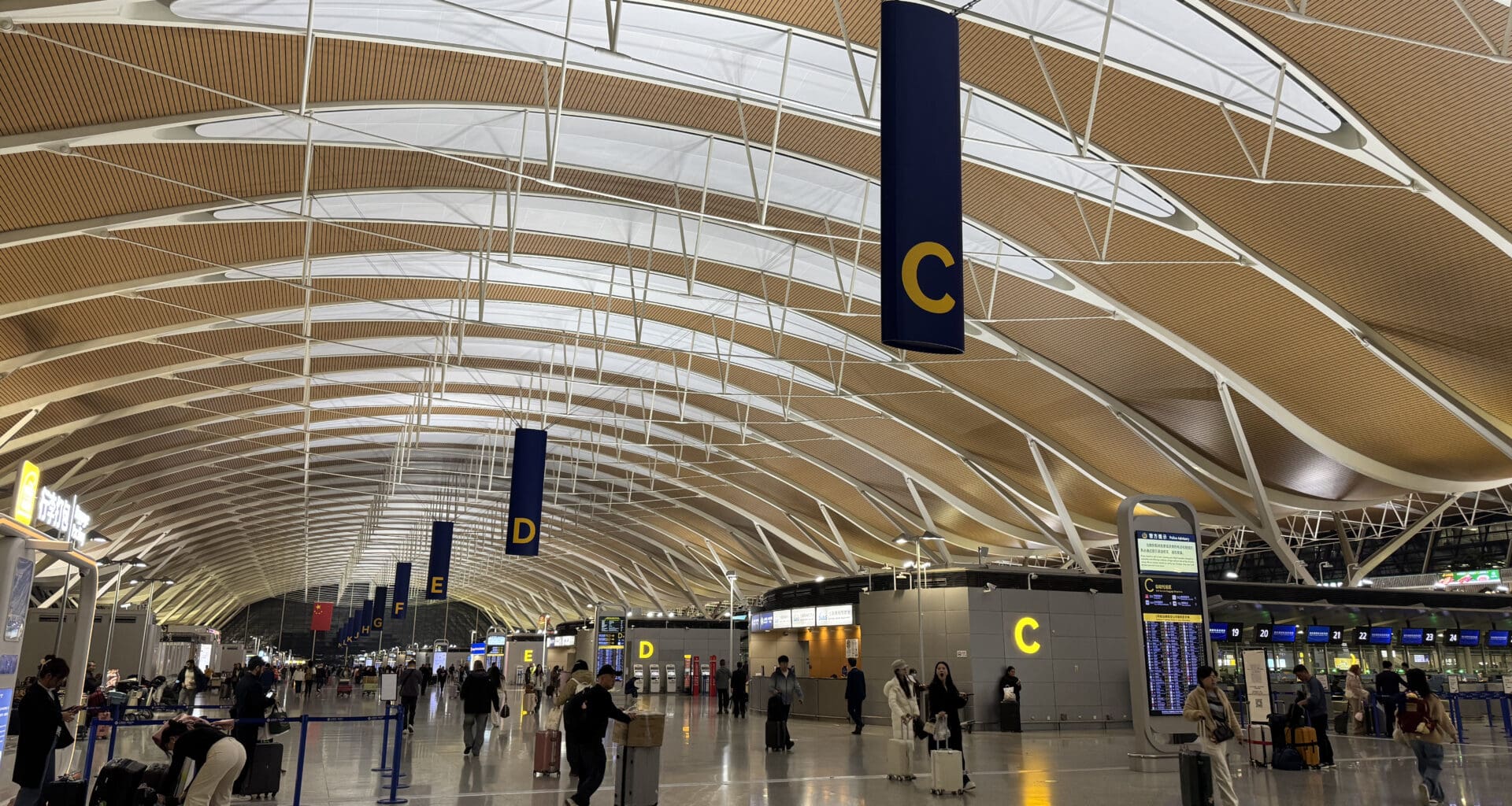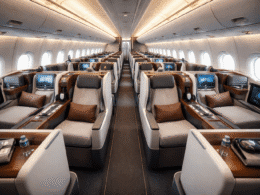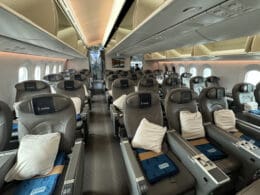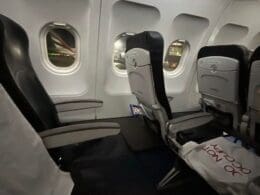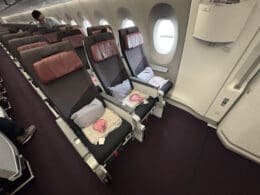Recently, social media has tested “the airport theory”. The airport theory challenges the traditional advice to get to the airport 2-3 hours early, setting a new trend – get to the airport 15-20 minutes before your flight. The thought behind it is that airlines and airports are incentivised to leave you in the airport for extended periods of time, so you spend money at their outlets.
I wanted to visit this question, and at least share my thought process of when I get to the airport before my flight. I’m not the most frequent flier in the world, though I do do my fair share of flights, and have rarely missed boarding time (I’ve yet to miss a flight). I’ll share some industry trends and observations, and then share my experience.
Just to keep my hands clean, this is just how I personally plan my trips to the airport. I think the below advice is fairly sound, though can’t take responsibility if you do miss your flight.
Airlines have a duty of care for your airport experience
Generally, airlines want you to make your flight. An airline cannot accurately predict whether security and immigration will take five minutes or two hours. Airlines will want to play it safe – rebooking you would be at their cost, or cause an unfavourable impression of the airline.
Generally, airlines recommend that you get to the airport two hours before shorthaul flights, and three hours before longhaul flights. Okay, this is a sweeping generalisation that assumes that you don’t have to go through immigration during shorthaul flights, or are less likely to check a bag (I’d assume this theory originated in Europe, where most shorthaul flights are intra-Schengen flights that basically operate domestically). Assuming you’re checking a bag, it will take exactly the same time for you to get through the airport if you were flying from Barcelona to New York, as it would take you if you were flying to London.
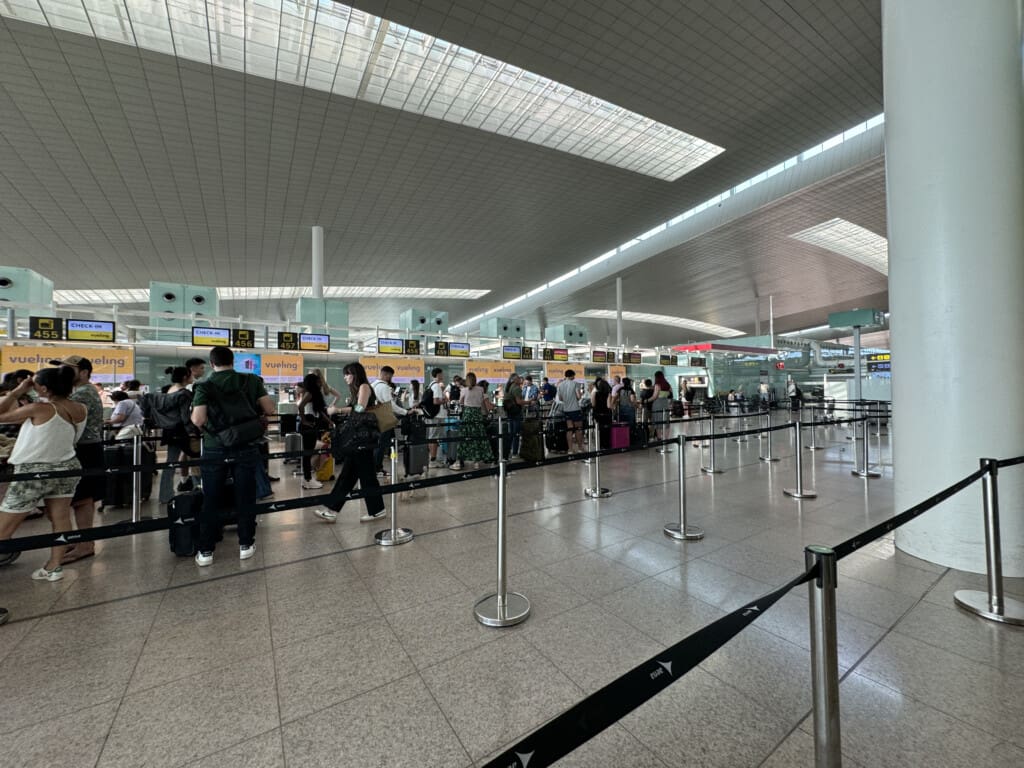
Getting through Barcelona Airport immigration will take the same amount of time regardless of which non-Schengen destination you’re flying to
However, airlines need a short and punchy rule of thumb that you can keep to. You will also get much more support if you miss a flight having arrived before the recommended time window (and can prove it), compared to if you arrived after the time window. An airline isn’t going to pay for your replacement flight if you arrive 15 minutes before your original flight begins to board, even if security and immigration take longer than you were personally expecting.
Airlines and airports are also more profit-oriented than they would like to admit
Of course, airlines aren’t completely customer-centred when they ask passengers to arrive very early for their flight. Airports do need to be able to pay their overheads and justify their operating costs, and retail is one of their biggest auxiliary income sources. So there is an element that airlines will shoot on the conservative end when it comes to when to arrive at the airport, so you’ll spend more at their food and beverage outlets.
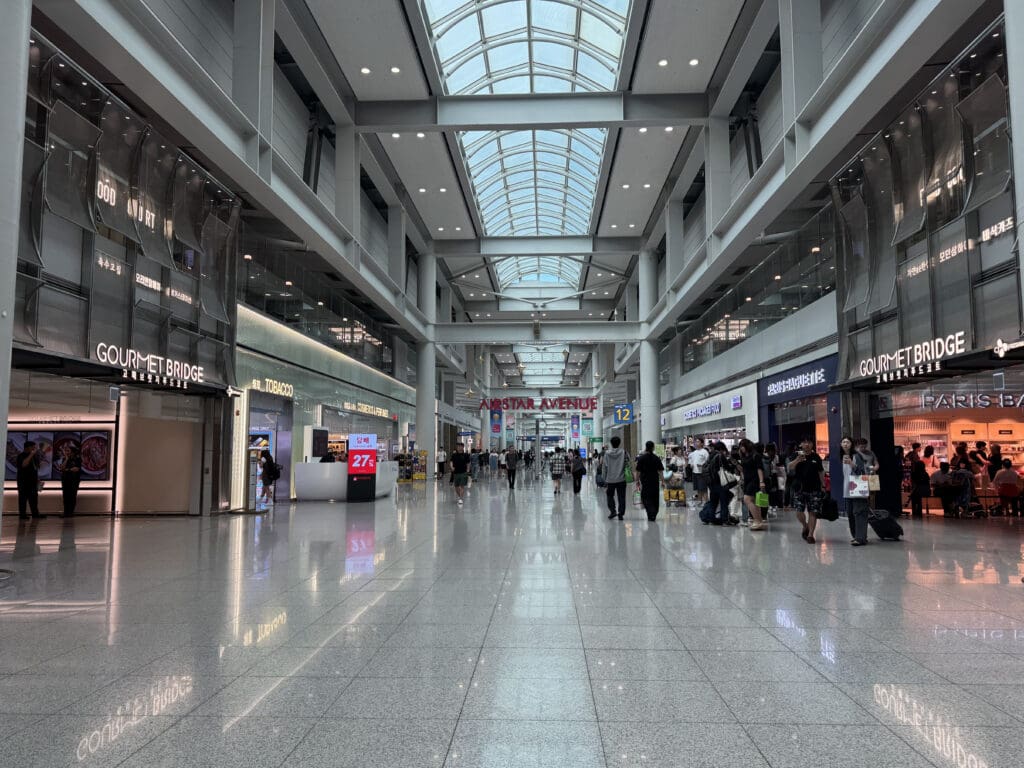
Airports do want you to spend at their food, beverage and retail outlets!
When should you arrive the airport before your flight?
I arrive at the airport at different times depending on when I’m flying and which airport I’m flying out of:
- The main consideration I have is whether I’ve been through the airport before: e.g. at Hong Kong Airport I’m very comfortable getting to the airport under an hour before departure, since I know queues won’t be that long, and I have e-gate immigration access
- I’ll consider if I have fast track access, such as if I’m flying business class
- I’ll also research to see whether there are pre-book services, such as at Luton Airport
- Of course, I’ll add 15-30 minutes if I need to check a bag (sometimes there’s no line, where checking a bag will be much faster than this)
- I keep my eyes peeled for any factors that could slow the airport process (e.g. when I flew China Eastern this month I was very conservative and arrived three hours before departure, in case I’d run into any issues with the new EU EES system)
- I’ll obviously also consider seasonal concerns – during the Christmas period I obviously would try to get to a major airport with more time to spare
- Of course if I have lounge access I consider that as well, as I generally like to make sure I’m taking advantage of any time I can spend at great airline lounges
Generally, I’d say that I average getting to the airport around 1h 30m before departure (that’s before the plane is scheduled to leave, and not before boarding time). I’ll get to the airport before that if I need to check a bag, want to be conservative, or want to visit an airline lounge, and I’ll get there slightly after if I’m very comfortable with getting straight to my flight.
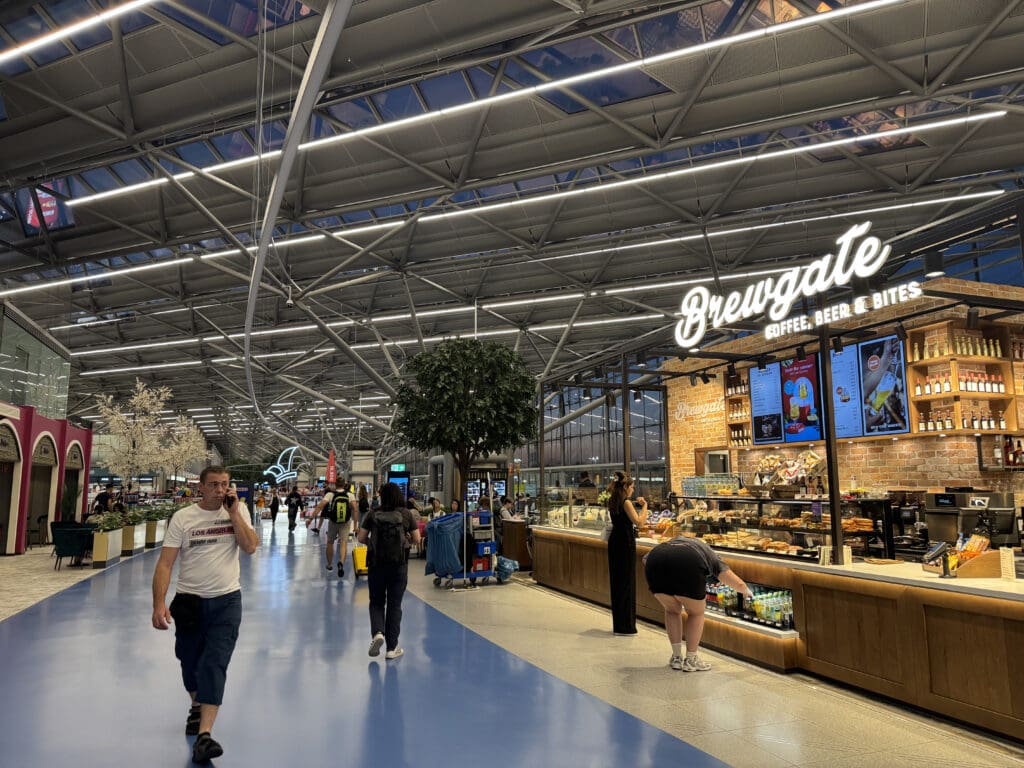
I travelled through Cologne Airport for the first time this summer, and arrived around 1h 30m before departure and had a comfortable amount of time to spare
Of course, I know I’m doing this at my own risk
I know that when I’m arriving 1h 30m before my flight, that’s cutting it closer than the 2-3 hours that airlines recommend. That’s because I know that 99.99% of the time, I’ll be able to get through immigration and security, and to the gate in less than 45 minutes (which is approximately when most flights begin boarding).
However, if this doesn’t happen, I’m not going to blame the airline, or expect the airport to compensate me for my replacement flight. I’m also not going to expect other passengers to move out of the way so I can get past, or for the airport to expedite my security and immigration experience (though I may ask nicely).
In December 2023, I figured that I’d have plenty of time to spare when I got to London City Airport 1h 20m before departure (after getting there from the office), since I figured the airport was known for its efficiency. Go figure that checking a bag and going through security both required a 20-minute queue. I barely made it in time for boarding that evening, and that was even before a connection to a longhaul itinerary to Hong Kong!
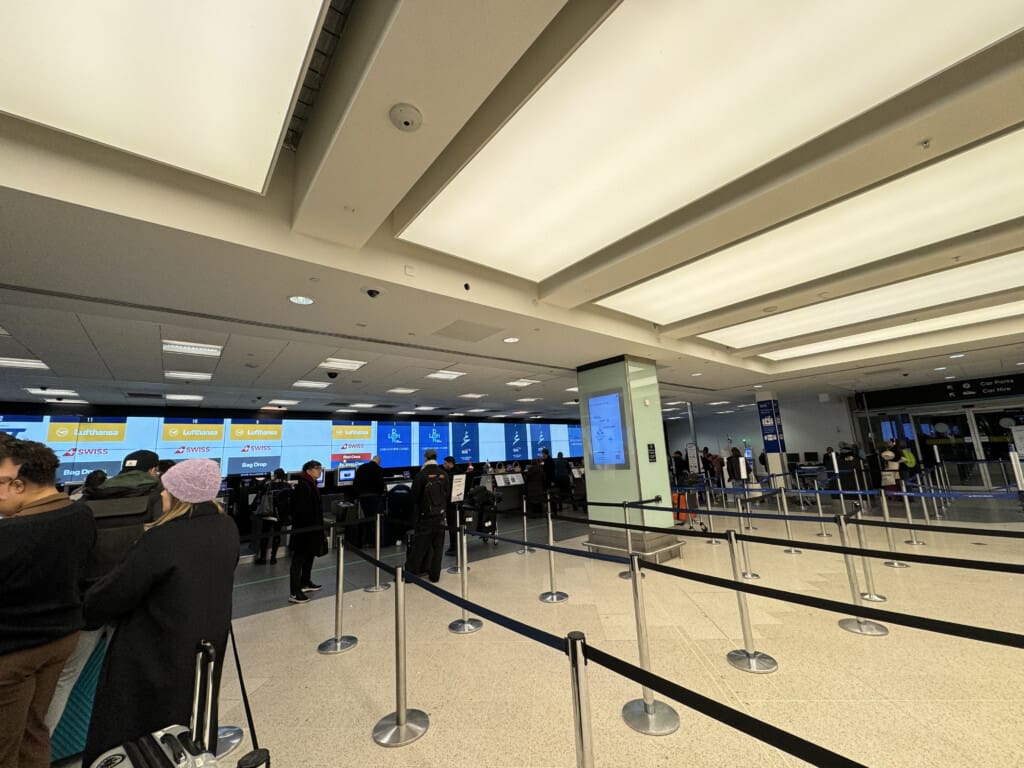
Almost missed my flight at London City Airport
What about if my flight is delayed?
When should you get to the airport if you’ve been told by the airline your flight is delayed? Well, this is a bit more complex.
Firstly, it depends on whether your flight is delayed because of a late arriving aircraft. Let’s say that I’m flying Finnair from Shanghai to Helsinki (I did this recently, though my flight wasn’t delayed). If the inbound flight from Helsinki to Shanghai was delayed by a few hours and arriving after my departure time, Finnair can’t magically make an A350 appear at Shanghai Pudong Airport. I’d be quite content spending a few extra hours in Shanghai, and arriving 1-1.5 hours before the plane lands from Helsinki.
However, let’s say that my Finnair flight from Helsinki to London is delayed (just using this example as I flew it a few days ago). Since Finnair is based in Helsinki, Finnair could easily decide to swap to another aircraft last minute – or if the flight is delayed due to weather, weather conditions may change, and the departure time could be updated to more closely match the original. In this case, at the airline’s hub, I’d be less likely to be so liberal with my time.
Do note that if you’re checking a bag, the check-in counter will still close at the original time, unless otherwise mentioned. The check-in agents are rota-ed on for the exact same time, and can’t help you if you miss the check-in window.
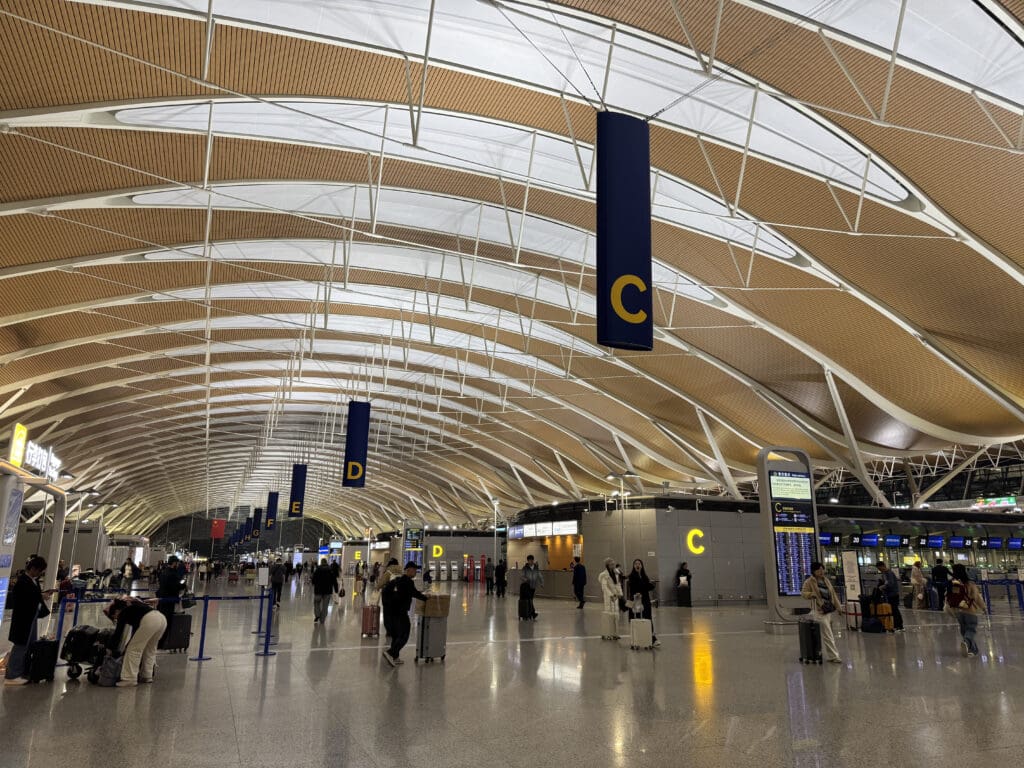
I’d be more comfortable arriving the airport later if my flight was delayed due to a late arriving aircraft at an outstation
What about connecting flights?
This is probably worth a separate post, though I’ll briefly cover how this applies if I’m connecting from a different flight within an airport.
If I’m buying a flight on a single itinerary, I know that the airline has a duty of care to get me to my destination, even if the first flight is delayed and I miss my connecting flight. This doesn’t mean that the airline guarantees I’ll get to my connecting flight on time, though. Airlines will generally only sell you a ticket if your layover meets their minimum connection time (MCT) requirement, meaning that they won’t let you cut it too close – assuming no delay.
For example, here’s an itinerary from Oslo to Singapore via Helsinki, once again on Finnair (I saw someone commenting on this connection on a Facebook post earlier). As you can see, even though the connection time is 40 minutes, Finnair is content selling this ticket as a single itinerary (the MCT at Helsinki Airport is 35 minutes).
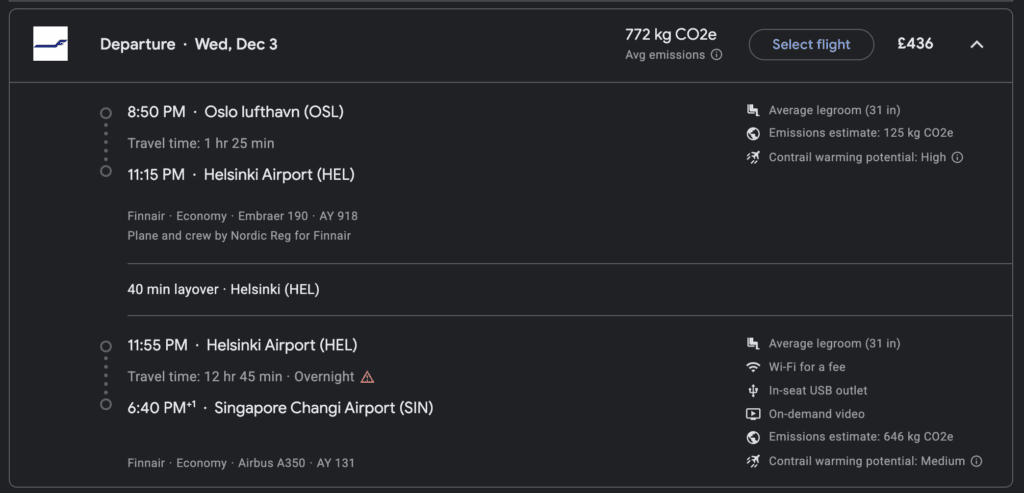
Theoretically, the Oslo to Helsinki flight only needs to be delayed by 20 minutes for the layover to be incredibly tight (especially if you get a bus gate). Finnair has a duty of care to get you to Singapore, though they don’t necessarily need to get you there on the same day. In this case Finnair would probably just rebook you for a flight to a different destination in Asia with a connection to Singapore on a Oneworld airline, or put you in a hotel and fly you out the next day.
I might book this if I need to leave Oslo at 9 PM, though I’d be ready to arrive Singapore late if needed. Before departing Oslo, I’d be realistic about the possibility of not arriving Singapore at 7 PM the next day, and look at alternative options of how to get to Singapore. If I do miss my flight, I’d request Finnair to book that itinerary for me.
The only thing I wouldn’t need to worry about is how much that itinerary is selling for, or whether I can buy that itinerary online. Finnair just needs to get me to Singapore if I miss my flight, and I don’t have to pay the fare difference in this case.
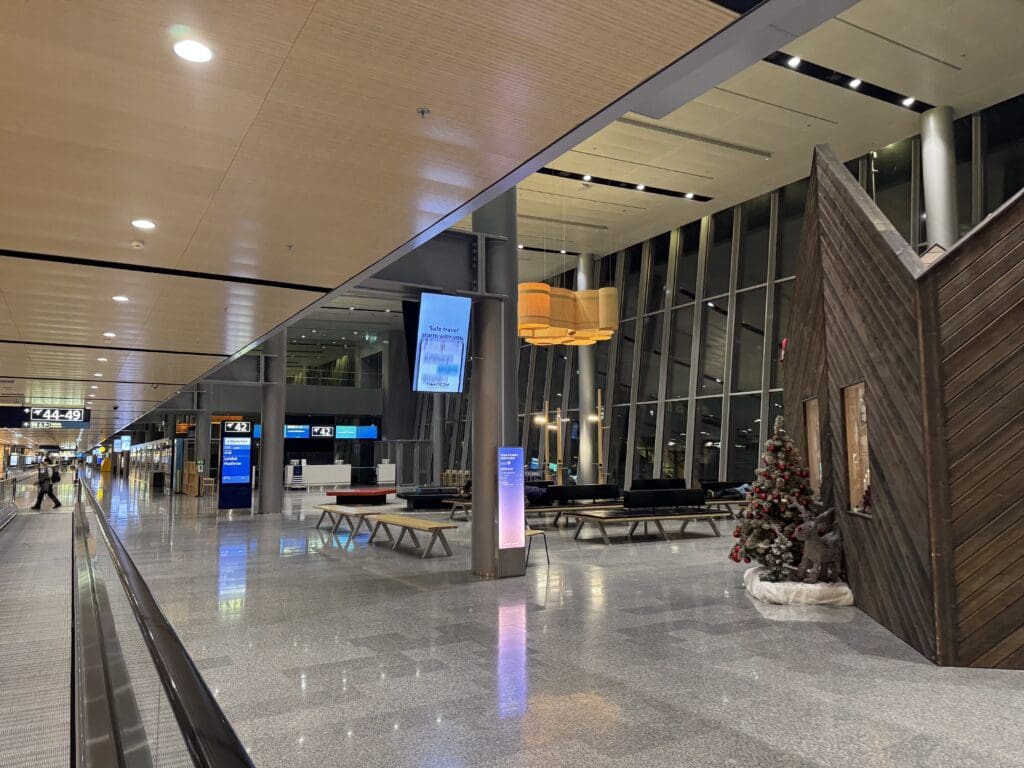
Airlines have a duty of care to get you to your destination if you’re connecting on a single itinerary
Generally, if I’m working with a single ticket, I’d aim for at least around a 1.5 h connection time, especially if connecting internationally. The thinking is that you’ll most likely need to go through security, and there’s also a buffer time for a slight delay from your inbound flight. When flying domestically within the U.S. or connecting from a domestic to international flight within the same terminal, that’s not the case, so perhaps I’d be happier with a tighter connection.
However, if I’ve got two separate tickets, I’d be a little bit more conservative. This is because the airline would no longer have a duty of care to get me to my destination. For example, last weekend I flew from London to Alicante, and from Alicante to Madrid on a separate ticket. I was a little antsy about my 1h 30m connection in Alicante – if my British Airways flight was delayed or arrivals immigration was a mess, the airline would have no obligation to get me to Madrid that evening (where I’d miss my flight to Shanghai the next morning, which was on a separate ticket as well).
So, I planned a contingency to get to Madrid in case I missed my connecting flight. Fortunately this all worked out, since my Alicante to Madrid flight got delayed.
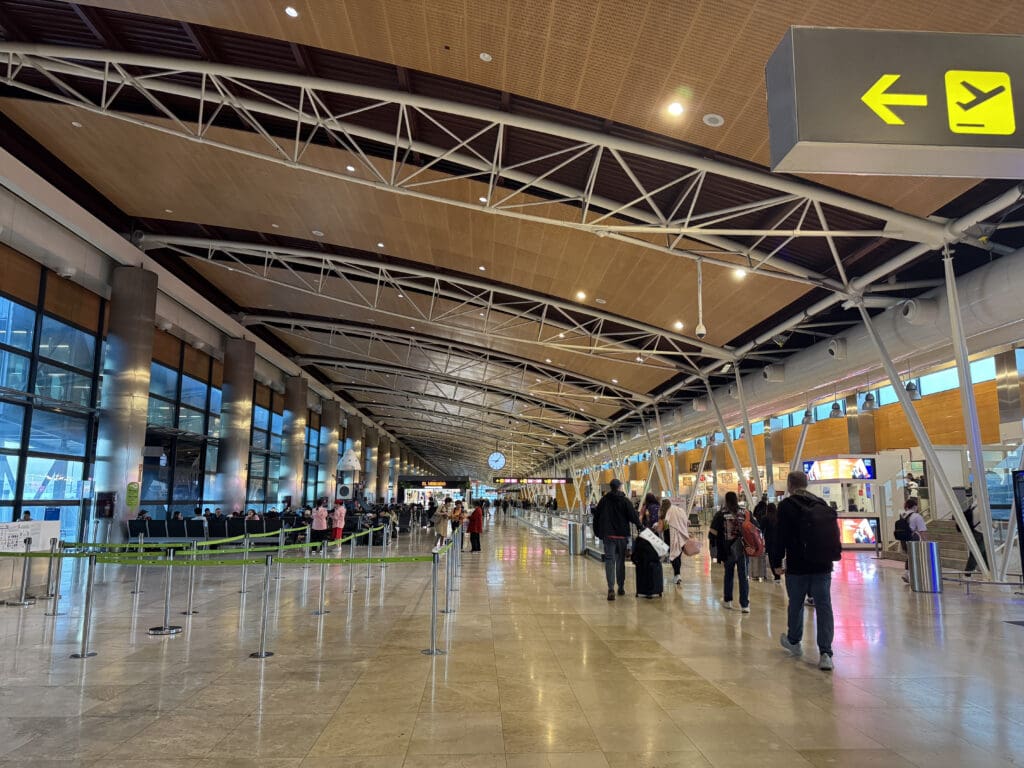 Doing some connection acrobatics over different tickets to get me to Madrid Airport
Doing some connection acrobatics over different tickets to get me to Madrid Airport
I’d suggest a minimum 2-2.5h connection if you’re connecting on separate tickets. The thinking is that worst case scenario if you don’t get your connecting boarding pass, or have to pick up your checked bag, you’ve got half an hour to get landside through immigration, and 1h 30m to get back through the other side.
Conclusion
When arriving airports, I consider many factors to figure out when to get to an airport. I personally lean closer to 1h 30m if I’m originating out of an airport, though honour the 2-3h recommendation from airlines during holiday season, or I expect any issues getting through security or immigration (and/or am checking a bag).
When connecting through an airport, I generally try and overshoot the minimum connection time by around 25-30 minutes (usually bringing me to the realm of 1h 30m) if I’m on the same ticket, and plan my own contingencies if that isn’t possible. When connecting on separate tickets, I try and leave 2-2.5h of buffer time.
When do you get to an airport before your flight?





